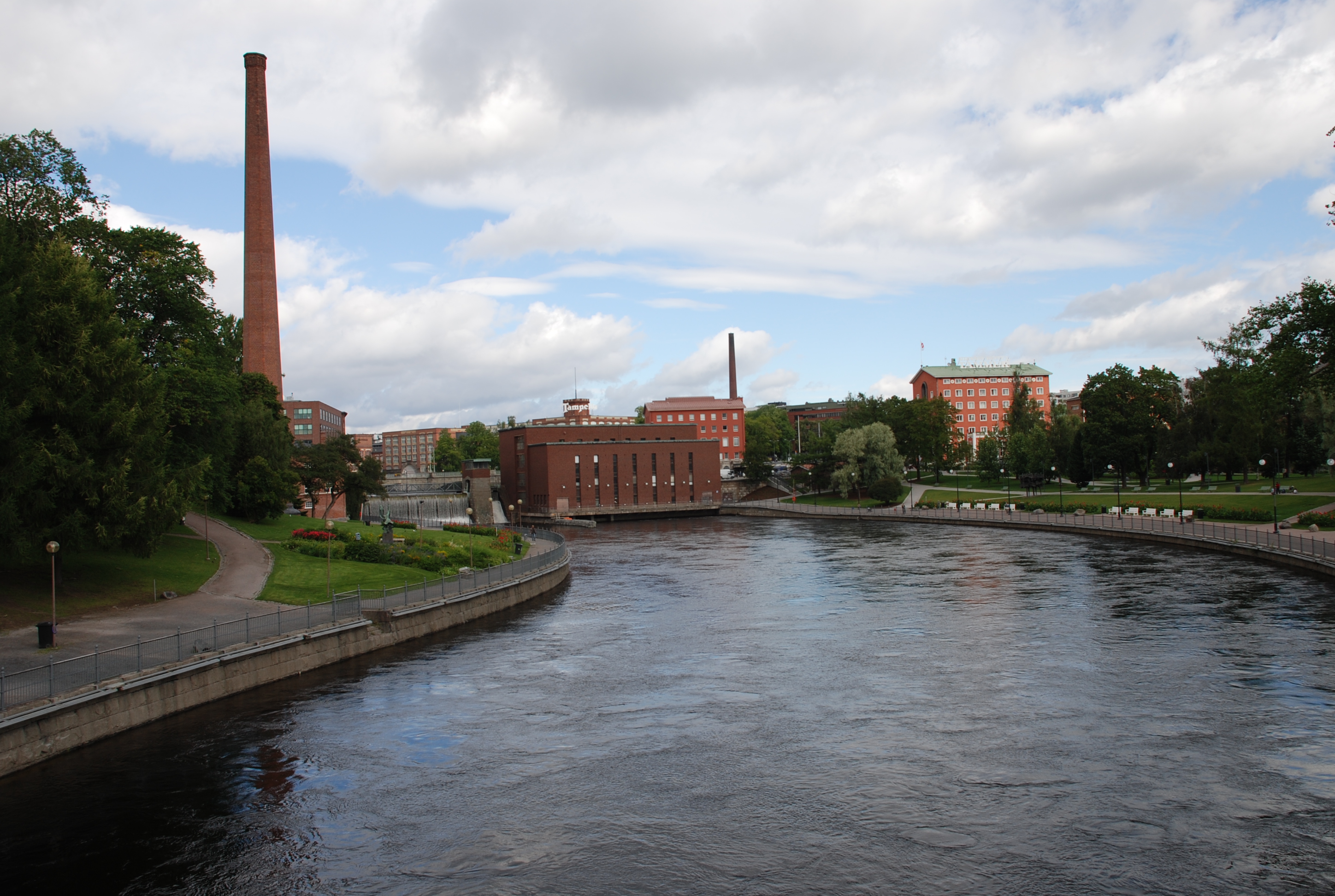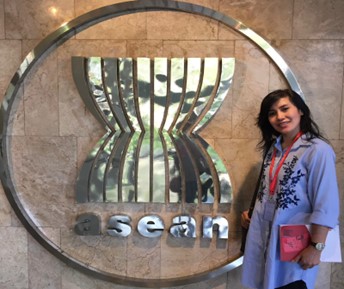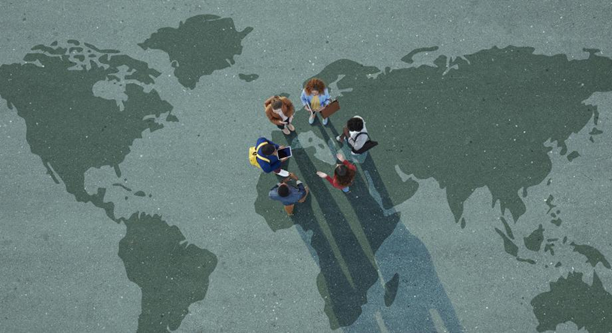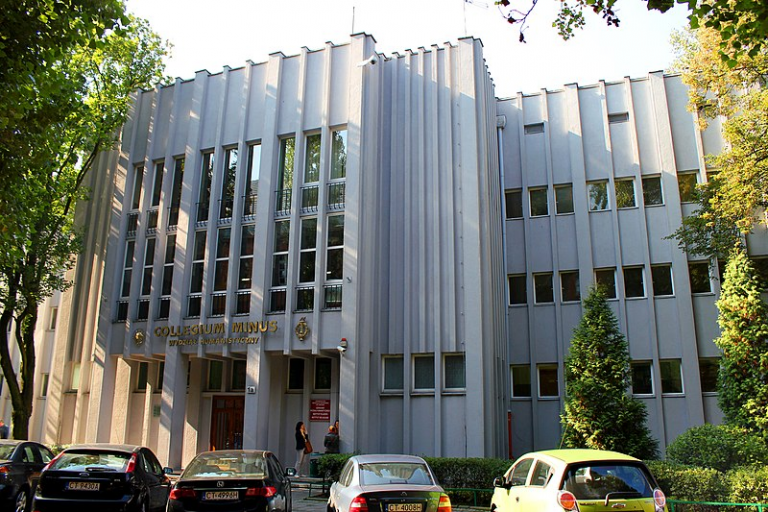“Nationalism, corruption, polarization and populism. Undermining of human rights, separation of powers and hasty law-making”. These are all issues that were identified as major contemporary or future threats to the rule of law in the conference “How can we protect the rule of law”, held on 5th of February 2019 in Tampere University. The conference was organized by the Public Law research group and was a part of the official programme of the Finnish Presidency of the Council of Europe. The rule of law is also important in the upcoming Finnish EU presidency that begins at the start of July 2019.
There are several definitions and understandings on, what is the rule of law and how to define the relationship between human rights and the rule of law. The purpose of this text is to provide three fresh perspectives to rule of law and human rights: institutional definitions, data collected from the rule of law –conference and youth participants.
Official Definitions of the Rule of Law Varies but Are Not Conflicting
The rule of law has been one of key principles of the European co-operation and one of the fundamentals forming common heritage of European peoples. The Council of Europe and the European Union have for example closely worked together in the field of rule of law. After the EU started EU rule of law framework, the EU Commission has mandate to trigger the rule of law framework to address systemic threats under Article 7 of Treaty of European Union. The first actions have been taken by the Commission against Poland in order to defend judicial impartiality.
The rule of law has been defined by different actors in a slightly different way. The Secretary-General of the United Nations has described the rule of law to include measures to ensure adherence to the principles of supremacy of law, equality before the law, accountability to the law, fairness in the application of the law, separation of powers, participation in decision-making, legal certainty, avoidance of arbitrariness and procedural and legal transparency.” (Report of the Secretary-General: The rule of law and transitional justice in conflict and post-conflict societies (S/2004/616).
The Venice Commission provided detailed check-list on the Rule of Law making references to several specific elements relating to human rights standards.
From the perspective of the supervision of the rule of law, the role of the European Court of Human Rights (ECtHR) has been fundamental. The ECtHR have for example focused on issues related to quality of the law, non-discrimination, equality of law, protection measures against arbitrary interferences by the public authorities and transparent justice system, including right to a fair trial (Article 6 of the European Convention on Human Rights). Furthermore, the Rule of Law requires that judicial decisions are effectively and promptly executed and that necessary measures are taken to combat against corruption and misuses of surveillance.
Participants of the conference agreed on the strong linkage of the Rule of Law and Human Rights
In the conference, a questionnaire was distributed to all participants in order to acknowledge their valuable expertize of the rule of law issues. We have anonymized the answers and made a summary of the findings on the basis of the received data.
The participants of the questionnaire all recognized the separation of powers, but also trust on legal system and decision making, including requirements of participation and accountability. The connection between the judiciary and the rule of law was also recognized: independent and impartial judiciary and equality before the law are cornerstones of the rule of law.
Importantly, the conference participants also strongly acknowledged the relationship between human rights, democracy and the rule of law. One participant defined the relationship between the rule of law and human rights as follows:
“The rule of law is an essential vehicle to protect and respect fundamental rights; in turn, there can only be an effective rule of law if fundamental rights such as the freedom of expression, access to justice and freedom of demonstration are protected.”
Human rights were referred to as something that “are secured under the rule of law” and in the other hand one participant defined rule of law as “precondition for the realization of human rights – and part of the human rights framework itself.”.
One participant also acknowledged that the rule of law depends on the country. In some countries the rule of law is “merely a tool for realising” human rights, where as in some other countries the rule of law is based on legal orders not respecting human rights. Minorities were also mentioned in this context.
Consequently, also the relevant indicators, identified in the answers to the questionnaire, had strong connection to measuring human rights: the Venice Commission and its rule of law check-list, which identifies and utilizes several human rights, impartiality of judiciary, guarantees of civil liberties and equality, transparency, safety and security.
Youth recommendations
As one the major developments in comparison to the traditional conferences was the key role placed on youth and listening to their opinions on the future of Council of Europe and rule of law. Youth participants had the ALL-YOUTH MasterClass on 4th of February prior to the Rule of Conference, where they prepared recommendations to the conference (full recommendation). The recommendations on the rule of law from the youth participants were the following:
-
”We found that the rule of law definitions are currently sufficiently congruent and not contradictory. However, we draw attention to the strong relationship between human rights law and the rule of law. We urge the Council of Europe and the EU to initiate a dialogue on the rule of law, so that the EU can adapt and acknowledge a stronger human rights basis and connection to the rule of law.
-
Climate change is a rule of law issue. Currently there is an increasing trend for climate change litigation and discussion on the role of courts and states. Our message to the European Court of Human Rights is that the court should not hesitate to use its powers to protect human rights also in times of climate crisis. Protection of human rights, such as the right to life requires protection from the implications of climate change.
-
We also call for the Council of Europe to set in motion a process to establish a specific mechanism to deal with climate change, including a special rapporteur, commission or other watch dog mechanism to enable independent and available country specific information on climate change as well as monitoring.
-
We moreover acknowledge the importance of the impartiality and independence of the judiciary in safeguarding the rule of law and maintaining public confidence in the judiciary.” Consequently, we encourage judges to report transparently in case of any threats or harassment. In addition, there is a need for institutional support and a mechanism through which judges can report.”
As can be concluded from the recommendations of the youth, they shared also the understanding between the close relationship between human rights and the rule of law. In addition, the impartiality and independence of the judiciary were recognized by the youth. In comparing to other participants, the youth defined however also climate change as a central rule of law issue.
The recognition of the climate change as a rule of law issue is interesting as well as important, as there is strong and ongoing trend of global climate change litigation movement. Some courts have already taken standing on their role and the climate change, such as in Dutch Urgenda case, where two courts have ruled that the inaction of the state in relation to climate change endangers rights of the individuals and is contrary to the international agreements.
Concluding remarks
The Council of Europe is celebrating its 70th anniversary. However, despite of its success, some State Parties that joined the European Convention on Human Rights with relatively good rule of law standards are now under an investigation and there are serious doubts to their commitment to the fundamental ideas of European peoples. When previously the human rights protection was one of the key requirements to the EU Membership (Copenhagen criteria), now even amongst the EU states there are systematical problems recognized and examined under the EU rule of law framework.
In order to have an adequate counterforce to threats such as nationalism, corruption, populism and undermining of separation of powers, it is essential that the independence and impartiality of judiciary are closely monitored and execution of judgments is guaranteed. To combat against these threats, it is important to recognize, that protection of the rule of law and human rights are intrinsically connected. The threats towards the rule of law can only be combated with the co-operation of all major European institutions and initiating constructive dialogue with member states.
There are several rule of law definitions, but as the samples of the conference participants and the youth show, the key understanding of the content of the rule of law is relatively stable. Depending on the institution, the definition varies from broad to very specific. In addition, the samples of the conference and the youth both underlined the relationship between human rights and the rule of law.
The interesting difference between the answers of the other conference visitors and the youth is that the youth did not only focus on the current challenges of the rule of law, but defined also climate change as a central rule of law issue. This reminds us that sometimes youth may identify some problems from another important perspective that would not otherwise recognized in the same extent.
It is essential to recognize, that the rule of law has been widely recognized and the monitoring tools are existing. Check-list of the Venice Commission and other practical tools have been introduced in order to improve combatting threats against the rule of law. It can be concluded that the tools and definitions are created on the rule of law and human rights but now it is time that the tools are also more widely used. How this is done? The answer is found from the youth recommendations on the future of the Europe: there is need for empowering education so that individuals become fully aware about these problems and can start to actively solve them in their daily lives.
Lue Lisää:
The New Media and the Strasbourg Court
Climate Change Calls for Pessimism





Kommentit